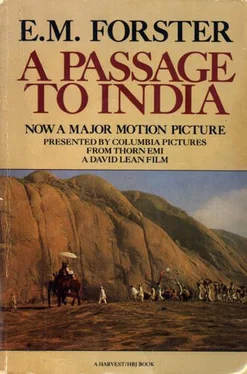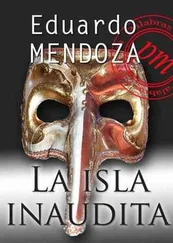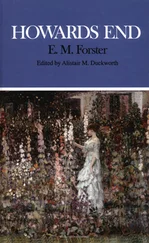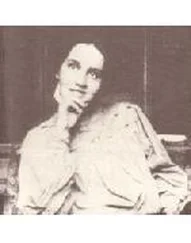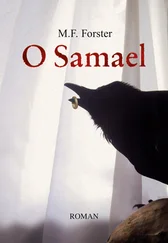Edward Forster - A Passage to India
Здесь есть возможность читать онлайн «Edward Forster - A Passage to India» весь текст электронной книги совершенно бесплатно (целиком полную версию без сокращений). В некоторых случаях можно слушать аудио, скачать через торрент в формате fb2 и присутствует краткое содержание. Город: San Diego, California, ISBN: , Издательство: Harcourt, Brace & World, Inc., Жанр: Классическая проза, на английском языке. Описание произведения, (предисловие) а так же отзывы посетителей доступны на портале библиотеки ЛибКат.
- Название:A Passage to India
- Автор:
- Издательство:Harcourt, Brace & World, Inc.
- Жанр:
- Год:неизвестен
- Город:San Diego, California
- ISBN:0-15-671142-7
- Рейтинг книги:5 / 5. Голосов: 1
-
Избранное:Добавить в избранное
- Отзывы:
-
Ваша оценка:
- 100
- 1
- 2
- 3
- 4
- 5
A Passage to India: краткое содержание, описание и аннотация
Предлагаем к чтению аннотацию, описание, краткое содержание или предисловие (зависит от того, что написал сам автор книги «A Passage to India»). Если вы не нашли необходимую информацию о книге — напишите в комментариях, мы постараемся отыскать её.
A Passage to India — читать онлайн бесплатно полную книгу (весь текст) целиком
Ниже представлен текст книги, разбитый по страницам. Система сохранения места последней прочитанной страницы, позволяет с удобством читать онлайн бесплатно книгу «A Passage to India», без необходимости каждый раз заново искать на чём Вы остановились. Поставьте закладку, и сможете в любой момент перейти на страницу, на которой закончили чтение.
Интервал:
Закладка:
PART III: TEMPLE
CHAPTER XXXIII
Some hundreds of miles westward of the Marabax Hills, and two years later in time, Professor Narayan Godbole stands in the presence of God. God is not born yet—that will occur at midnight—but He has also been born centuries ago, nor can He ever be born, because He is the Lord of the Universe, who transcends human processes. He is, was not, is not, was. He and Professor Godbole stood at opposite ends of the same strip of carpet.
"Tukaram, Tukaram,
Thou art my father and mother and everybody.
Tukaram, Tukaram,
Thou art my father and mother and everybody.
Tukaram, Tukaram,
Thou art my father and mother and everybody.
Tukaram, Tukaram,
Thou art my father and mother and everybody.
Tukaram…"
This corridor in the palace at Mau opened through other corridors into a courtyard. It was of beautiful hard white stucco, but its pillars and vaulting could scarcely be seen behind coloured rags, iridescent balls, chandeliers of opaque pink glass, and murky photographs framed crookedly. At the end was the small but famous shrine of the dynastic cult, and the God to be born was largely a silver image the size of a teaspoon. Hindus sat on either side of the carpet where they could find room, or overflowed into the adjoining corridors and the courtyard—Hindus, Hindus only, mild-featured men, mostly villagers, for whom anything outside their villages passed in a dream. They were the toiling ryot, whom some call the real India. Mixed with them sat a few tradesmen out of the little town, officials, courtiers, scions of the ruling house. Schoolboys kept inefficient order. The assembly was in a tender, happy state unknown to an English crowd, it seethed like a beneficent potion. When the villagers broke cordon for a glimpse of the silver image, a most beautiful and radiant expression came into their faces, a beauty in which there was nothing personal, for it caused them all to resemble one another during the moment of its indwelling, and only when it was withdrawn did they revert to individual clods. And so with the music. Music there was, but from so many sources that the sum-total was untrammelled. The braying banging crooning melted into a single mass which trailed round the palace before joining the thunder. Rain fell at intervals throughout the night.
It was the turn of Professor Godbole's choir. As Minister of Education, he gained this special honour. When the previous group of singers dispersed into the crowd, he pressed forward from the back, already in full voice, that the chain of sacred sounds might be uninterrupted. He was barefoot and in white, he wore a pale blue turban; his gold pince-nez had caught in a jasmine garland, and lay sideways down his nose. He and the six colleagues who supported him clashed their cymbals, hit small drums, droned upon a portable harmonium, and sang:
"Tukaram, Tukaram,
Thou art my father and mother and everybody.
Tukaram, Tukaram,
Thou art my father and mother and everybody.
Tukaram, Tukaram…"
They sang not even to the God who confronted them, but to a saint; they did not one thing which the nonHindu would feel dramatically correct; this approaching triumph of India was a muddle (as we call it), a frustration of reason and form. Where was the God Himself, in whose honour the congregation had gathered? Indistinguishable in the jumble of His own altar, huddled out of sight amid images of inferior descent, smothered under rose-leaves, overhung by oleographs, outbiazed by golden tablets representing the Rajah's ancestors, and entirely obscured, when the wind blew, by the tattered foliage of a banana. Hundreds of electric lights had been lit in His honour (worked by an engine whose thumps destroyed the rhythm of the hymn). Yet His face could not be seen. Hundreds of His silver dishes were piled around Him with the minimum of effect. The inscriptions which the poets of the State had composed were hung where they could not be read, or had twitched their drawing-pins out of the stucco, and one of them (composed in English to indicate His universality) consisted, by an unfortunate slip of the draughtsman, of the words, "God si Love."
God si Love. Is this the first message of India?
"Tukaram, Tukaram…"
continued the choir, reinforced by a squabble behind the purdah curtain, where two mothers tried to push their children at the same moment to the front. A little girl's leg shot out like an eel. In the courtyard, drenched by the rain, the small Europeanized band stumbled off into a waltz. "Nights of Gladness" they were playing. The singers were not perturbed by this rival, they lived beyond competition. It was long before the tiny f ragment of Professor Godbole that attended to outside things decided that his pince-nez was in trouble, and that until it was adjusted he could not choose a new hymn. He laid down one cymbal, with the other he clashed the air, with his free hand he fumbled at the flowers round his neck. A colleague assisted him. Singing into one an other's grey moustaches, they disentangled the chain from the tinsel into which it had sunk. Godbole consulted the music-book, said a word to the drummer, who broke rhythm, made a thick little blur of sound, and produced a new rhythm. This was more exciting, the inner images it evoked more definite, and the singers' expressions became fatuous and languid. They loved all men, the whole universe, and scraps of their past, tiny splinters of detail, emerged for a moment to melt into the universal warmth. Thus Godbole, though she was not important to him, remembered an old woman he had met in Chandrapore days. Chance brought her into his mind while it was in this heated state, he did not select her, she happened to occur among the throng of soliciting images, a tiny splinter, and he impelled her by his spiritual force to that place where completeness can be found. Completeness, not reconstruction. His senses grew thinner, he remembered a wasp seen he forgot where, perhaps on a stone. He loved the wasp equally, he impelled it likewise, he was imitating God. And the stone where the wasp clung—could he… no, he could not, he had been wrong to attempt the stone, logic and conscious effort had seduced, he came back to the strip of red carpet and discovered that he was dancing upon it. Up and down, a third of the way to the altar and back again, clashing his cymbals, his little legs twinkling, his companions dancing with him and each other. Noise, noise, the Europeanized band louder, incense on the altar, sweat, the blaze of lights, wind in the bananas, noise, thunder, eleven-fifty by his wrist-watch, seen as he threw up his hands and detached the tiny reverberation that was his soul. Louder shouts in the crowd. He danced on. The boys and men who were squatting in the aisles were lifted forcibly and dropped without changing their shapes into the laps of their neighbours. Down the path thus cleared advanced a litter.
It was the aged ruler of the state, brought against the advice of his physicians to witness the Birth ceremony.
No one greeted the Rajah, nor did he wish it; this was no moment for human glory. Nor could the litter be set down, lest it defiled the temple by becoming a throne. He was lifted out of it while its feet remained in air, and deposited on the carpet close to the altar, his immense beard was straightened, his legs tucked under him, a paper containing red powder was placed in his hand. There he sat, leaning against a pillar, exhausted with illness, his eyes magnified by many unshed tears.
He had not to wait long. In a land where all else was unpunctual, the hour of the Birth was chronometrically observed. Three minutes before it was due, a Brahman brought forth a model of the village of Gokul (the Bethlehem in that nebulous story) and placed it in front of the altar. The model was on a wooden tray about a yard square; it was of clay, and was gaily blue and white with streamers and paint. Here, upon a chair too small for him and with a head too large, sat King Kansa, who is Herod, directing the murder of some Innocents, and in a corner, similarly proportioned, stood the father and mother of the Lord, warned to depart in a dream. The model was not holy, but more than a decoration, for it diverted men from the actual image of the God, and increased their sacred bewilderment. Some of the villagers thought the Birth had occurred, saying with truth that the Lord must have been born, or they could not see Him. But the clock struck midnight, and simultaneously the rending note of the conch broke forth, followed by the trumpeting of elephants; all who had packets of powder threw them at the altar, and in the rosy dust and incense, and clanging and shouts, Infinite Love took upon itself the form of SHRI KRISHNA, and saved the world. All sorrow was annihilated, not only for Indians, but for foreigners, birds, caves, railways, and the stars; all became joy, all laughter; there had never been disease nor doubt, misunderstanding, cruelty, fear. Some jumped in the air, others flung themselves prone and embraced the bare feet of the universal lover; the women behind the purdah slapped and shrieked; the little girl slipped out and danced by herself, her black pigtails flying. Not an orgy of the body; the tradition of that shrine forbade it. But the human spirit had tried by a desperate contortion to ravish the unknown, flinging down science and history in the struggle, yes, beauty herself. Did it succeed? Books written afterwards say "Yes." But how, if there is such an event, can it be remembered afterwards? How can it be expressed in anything but itself? Not only from the unbeliever are mysteries hid, but the adept himself cannot retain them. He may think, if he chooses, that he has been with God, but as soon as he thinks it, it becomes history, and falls under the rules of time.
Читать дальшеИнтервал:
Закладка:
Похожие книги на «A Passage to India»
Представляем Вашему вниманию похожие книги на «A Passage to India» списком для выбора. Мы отобрали схожую по названию и смыслу литературу в надежде предоставить читателям больше вариантов отыскать новые, интересные, ещё непрочитанные произведения.
Обсуждение, отзывы о книге «A Passage to India» и просто собственные мнения читателей. Оставьте ваши комментарии, напишите, что Вы думаете о произведении, его смысле или главных героях. Укажите что конкретно понравилось, а что нет, и почему Вы так считаете.
